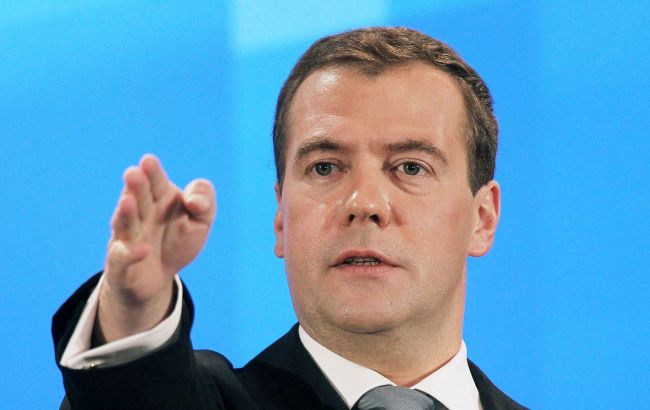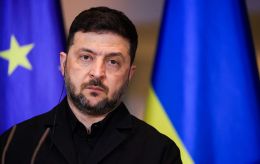Medvedev’s nuclear threats fuel Kremlin’s intimidation strategy - ISW
 Deputy Chairman of the Russian Security Council Dmitry Medvedev (Photo: Getty Images)
Deputy Chairman of the Russian Security Council Dmitry Medvedev (Photo: Getty Images)
Threats by Dmitry Medvedev, Deputy Chairman of the Russian Security Council, toward the US are part of a broader Kremlin campaign of nuclear saber-rattling, according to a report by the US Institute for the Study of War (ISW).
The report referenced a public press conference held on August 1 by Russian President Vladimir Putin and Belarusian President Alexander Lukashenko.
During the event, Lukashenko criticized recent efforts by Trump to engage Russia in negotiations and find a way to end the war.
The Belarusian leader noted that Trump must act cautiously and seemingly should not dictate the rules during an armed conflict - especially to a nuclear state like Russia.
"Kremlin officials and their affiliates often use nuclear saber-rattling as part of their reflexive control campaign that aims to push the West to make decisions that benefit Russia. The Kremlin had also repeatedly used staged interactions with Lukashenko to deliver indirect nuclear threats," the Institute stated.
The ISW also considers the threats voiced on July 31 by Dmitry Medvedev, Deputy Chairman of the Russian Security Council, toward the US as part of this reflexive control tactic.
Analysts reminded that Putin regularly uses the former president to amplify radical rhetoric meant to create panic and fear among Western political leaders and deter support for Ukraine.
The Institute for the Study of War further believes that Medvedev’s provocative and threatening statements are very likely part of a centralized Kremlin information strategy.
"Putin would be able to censor Medvedev's statements should Putin choose to do so, especially considering that the Kremlin coordinates official statements and controls the Russian information space, internet, and media," the ISW report says.
Trump’s ultimatum and Medvedev’s threats
On July 28, U.S. President Donald Trump changed the previous conditions of his ultimatum to the Kremlin to reach a peace deal with Ukraine within 50 days.
The head of the White House set a new deadline for ending the war — 10 days, meaning by August 8.
The Kremlin responded that it would continue its so-called special military operation, while Dmitry Medvedev, Deputy Chairman of the Russian Security Council, called Trump’s demand a step toward war between Russia and the US.
“Trump's playing the ultimatum game with Russia: 50 days or 10… He should remember 2 things: 1. Russia isn't Israel or even Iran. 2. Each new ultimatum is a threat and a step towards war. Not between Russia and Ukraine, but with his own country,” Medvedev wrote on social media platform X.
In response, Trump advised Medvedev to watch his words and added that he was stepping onto very dangerous ground.
In addition, the US President ordered two nuclear submarines to be deployed to the Russian coast, though he did not specify their exact location.

